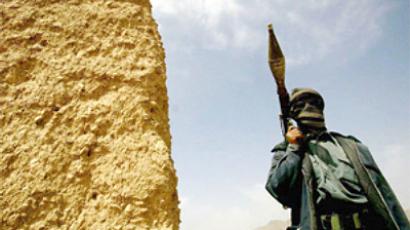Pakistan could become #1 nuclear threat
Despite the army's determination to wipe out the Taliban from the Swat Valley, there are fears the militants could seize Pakistan's nuclear weapons.
The Pakistani military claims it is well on the way to wiping out militants in the region, but the international community remains highly concerned, fearing Pakistan's nuclear arsenal could fall into the hands of Taliban militants.
A month ago, Pakistan launched its major offensive against Taliban militants who had taken over the Swat valley,less than 100 kilometers from the capital, Islamabad. Pakistan has been slow to take on the Taliban, having always focused on India as its primary adversary. For other nations though, the main concern now is making sure Pakistan’s nuclear weapons do not fall into militant hands.
“The Pakistani military is a credible military, it is a professional military. But the wild card is the possibility that you have a wide section of the Pakistani military that is sympathetic to the cause and ideology of the Taliban,” warns defense analyst Uday Bhaskar.
The offensive in the Swat valley has so far cost the lives of around 90 soldiers and over 1,000 militants, according to the Pakistani army. Up to three million people in the area have become refugees – necessary sacrifices, say some.
Former Pakistani President Pervez Musharraf says the fighting is indispensable.
“American forces are doing action in Afghanistan, Pakistan forces are doing action to protect Pakistan. The Taliban is not what we want in Pakistan,” concluded Musharraf. “Their views on Islam are not what we want for Pakistan. Therefore Pakistan armed forces are fighting Taliban, in their own interest.”
Neighboring India has also suffered from Islamic extremists, most notably those in Mumbai last November. But the country feels somewhat hampered in stopping it, with much of the terrorist infrastructure thought to lie in Pakistan. Unless the Taliban is defeated in Pakistan, a terrorist framework and nuclear arsenal could fall into the hands of people to whom nuclear deterrence means nothing – something first of all Indian citizens are really concerned about.
“India should not wait for the Pakistani government, rather it should help the Pakistani government [telling them] ‘If you’re fighting the Taliban, if you’re incapable, if you’re asking for helicopters from the US, take helicopters from us, we are ready to help you. Our army is there, we’ll abolish the Taliban with you’,” concludes Delhi resident Pradeep Vidyarthi.
Pakistani commanders say the army may not be able to leave the Swat for another year, while police and local government are re-established. They say they're determined to kill the Taliban leaders in order to secure lasting peace in the region. But until they do, the battle is far from over.
Meanwhile at least thirty people have been killed in the latest suicide bombing in Pakistan's capital Islamabad, more than forty other were wounded.
The attack is seen as retaliation for the Pakistani army's month-long offensive against the Taliban in the Swat valley.














